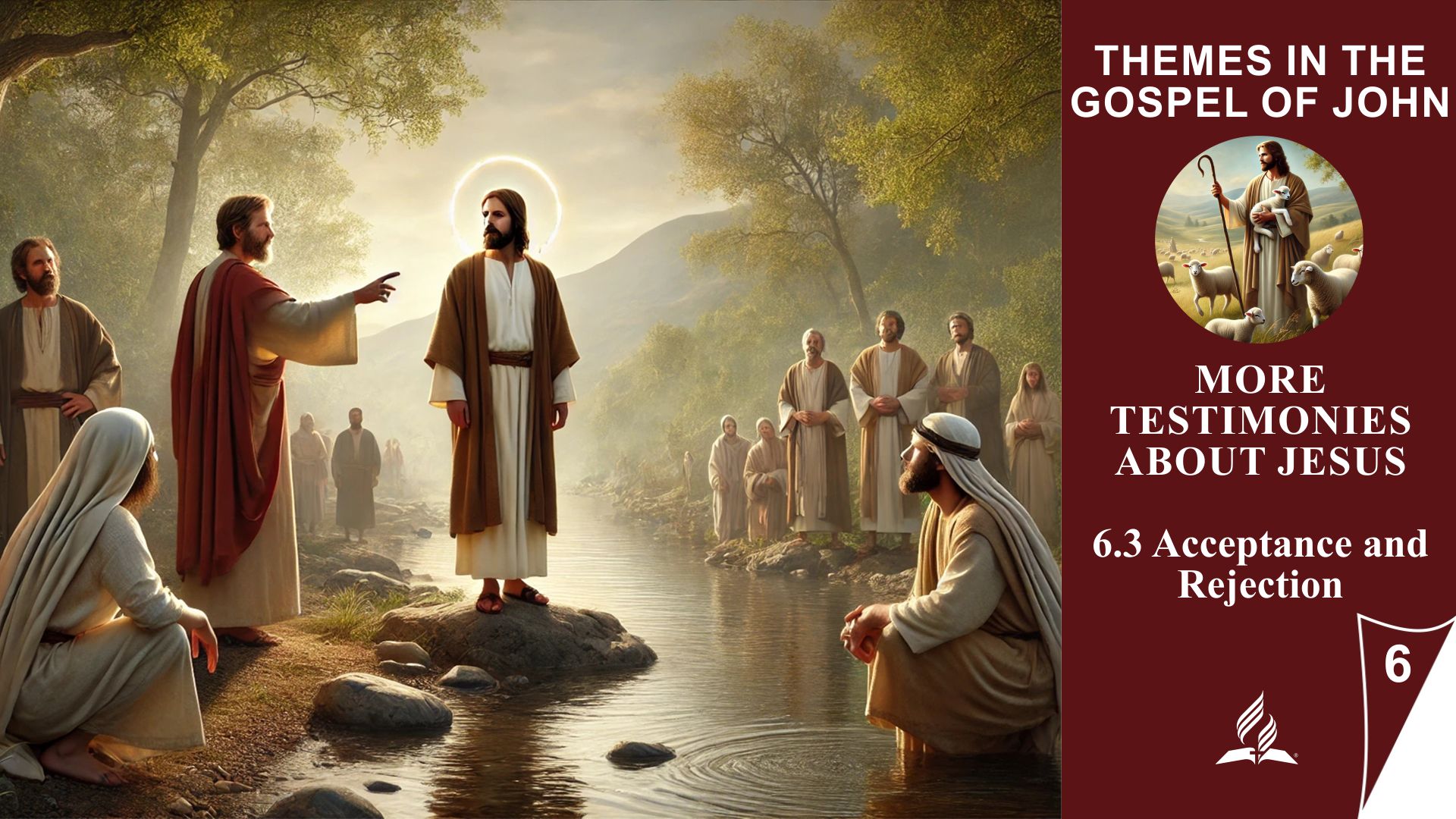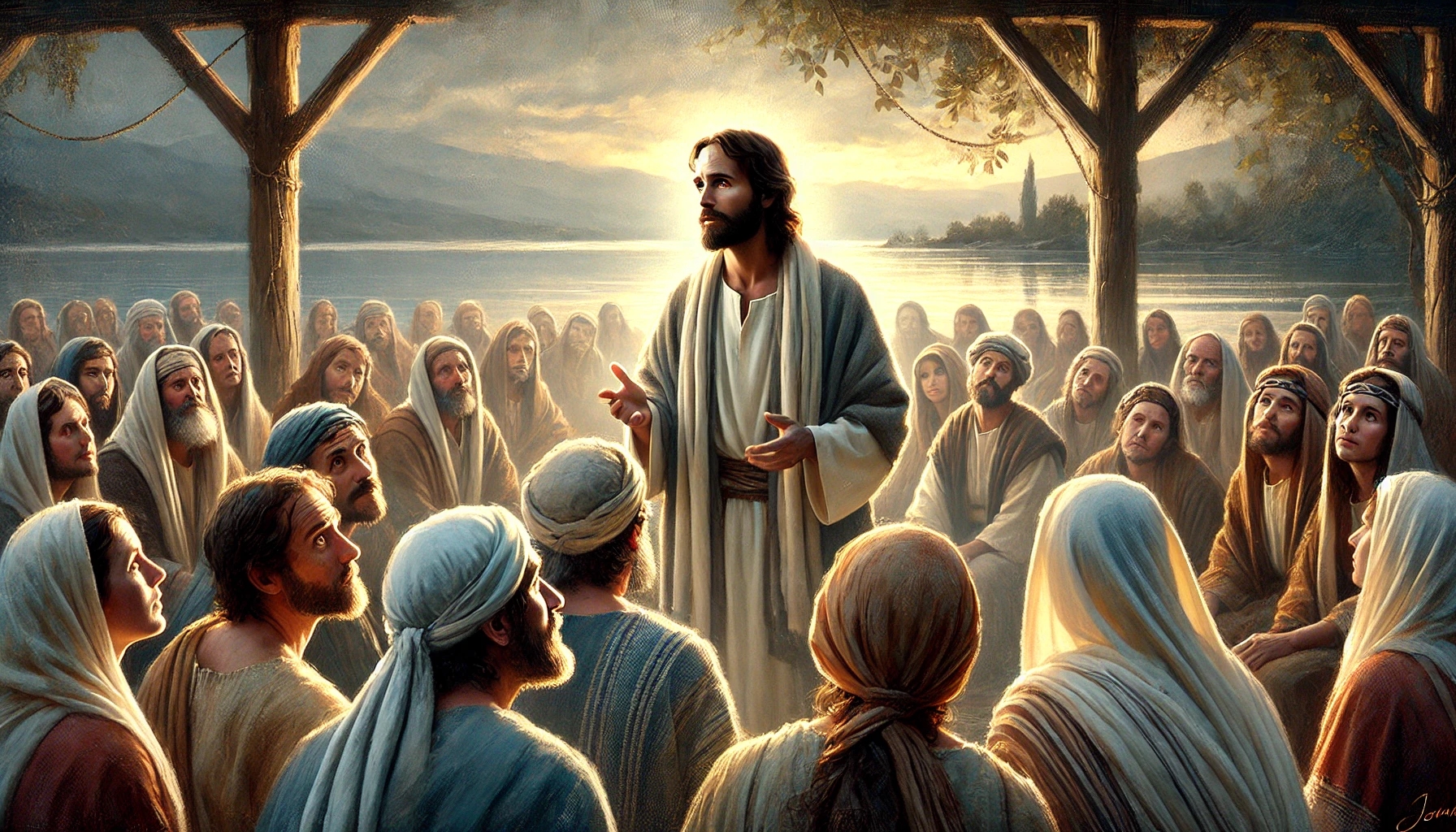


6.3 Acceptance and Rejection
“The Bread of Life” – Jesus’ Call to Deeper Commitment
Read John 6:51–71. What did Jesus say that people found difficult to accept?
In John 6:51–71, Jesus speaks one of the most central yet elusive truths of His ministry: “I am the bread of life.” By declaring that this bread is His flesh, which He gives for the life of the world, Jesus challenges people to accept Him in a way that goes beyond their worldly notions and expectations. They were willing to celebrate Him as a king as long as He fulfilled their immediate needs, but the deeper spiritual significance of His ministry—as a sacrifice and giver of life—many could not accept. This point marks the turning away of many of His followers.
Jesus’ words exposed the crowd’s understanding: they wanted a Messiah who fit their earthly thinking and would bring them freedom and prosperity. But Jesus demanded a radical change in mindset, a “spiritual food” that grants eternal life instead of satisfying short-term needs. His message required dedication, faith, and the willingness to see the material world as transient. For many, this was too high a price, and they left.
This must have been a deeply painful moment for Jesus. As the crowd that had just been praising Him turned away, He tested His closest disciples, asking if they too wanted to leave. This demonstrates the depth of His commitment to the truth beyond seeking people’s approval. Peter’s response is a powerful confession: “You have the words of eternal life.” The disciples had experienced that Jesus offered them something beyond the visible. Despite their imperfections and incomplete understanding, they stayed with Him—not because of words everyone could understand, but because of the unique hope and truth that only Jesus gave them.
This episode reminds us that genuine faith often means listening to deeper truths, even when they challenge us or we do not fully grasp them yet. It invites us to examine our own willingness to dedicate ourselves and recognize that true discipleship does not always follow the crowd or popular expectations but lies in faithfulness to Jesus’ words—words of eternal life.
This story and the significance of Jesus’ statement “I am the bread of life” remind us that genuine faith often requires swimming against the current of society and even against the expectations of other believers. The connection to our daily lives and faith lies in the fact that we often must remain steadfast in our convictions, even if they alienate us from the majority or cultural trends. Here are some concrete points of connection:
-
Faith as a Foundation, Not as Adaptation to Society In a world that often praises quick success and material satisfaction, Jesus shows us that true life is found in dedication and trust in God. Even if this means standing against societal norms or popular ideas, our faith is stronger when it is oriented toward God’s Word and not the opinions of the majority.
-
Living True Values in Decisions and Actions Jesus’ call to dedication as the “bread of life” invites us to align our decisions with His teachings. In daily life, this can mean not always taking the path of least resistance or focusing on short-term successes but rather ensuring that our decisions reflect our faith and God’s love. This can guide us in work, family, and interpersonal relationships and encourage us to live authentically and with integrity.
-
Consistency and Courage in Discipleship In daily life, it takes courage to uphold beliefs that may not be popular. The willingness to remain with Jesus even when it makes us outsiders strengthens us in discipleship. Remembering that Jesus did not waver from His path despite rejection and misunderstandings gives us the strength to remain steadfast in challenges and not be swayed by others’ opinions.
-
A Faith that Goes Beyond Material Needs Jesus teaches us that true life and fulfillment are not found in material things but in the spiritual life that looks beyond the visible. This perspective can help us prioritize in daily life and focus less on material goods or successes and more on what endures forever—love, faithfulness, and dedication to God and our neighbors.
-
A Personal Relationship with God as an Anchor Just as Peter and the disciples stayed with Jesus because they recognized Him as the “word of eternal life,” we are invited to maintain a personal and living relationship with God. This gives us strength and confidence, even when others do not understand or reject us. Our relationship with God becomes an anchor that holds us steady when we need guidance in difficult or unpopular decisions.
Ultimately, this event shows us that genuine faith often requires the courage to be unpopular and that true discipleship means developing a deep inner conviction and dedication. When we remember daily that Jesus’ words and life show us the way to eternal life, we can rely on Him even if our faith does not receive the majority’s approval. In this dedication and consistency, we find the true fullness of life that Jesus promised us.
True strength in faith often means following the quiet call of truth, even when the world takes a different direction.
(Visited 27 times, 1 visits today)






















